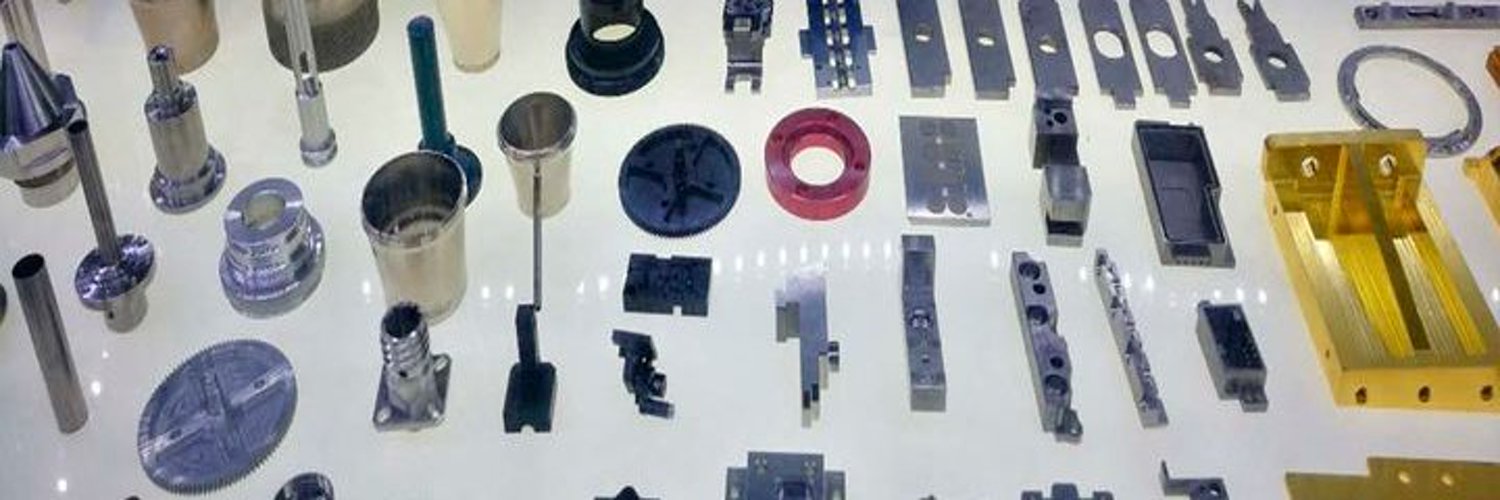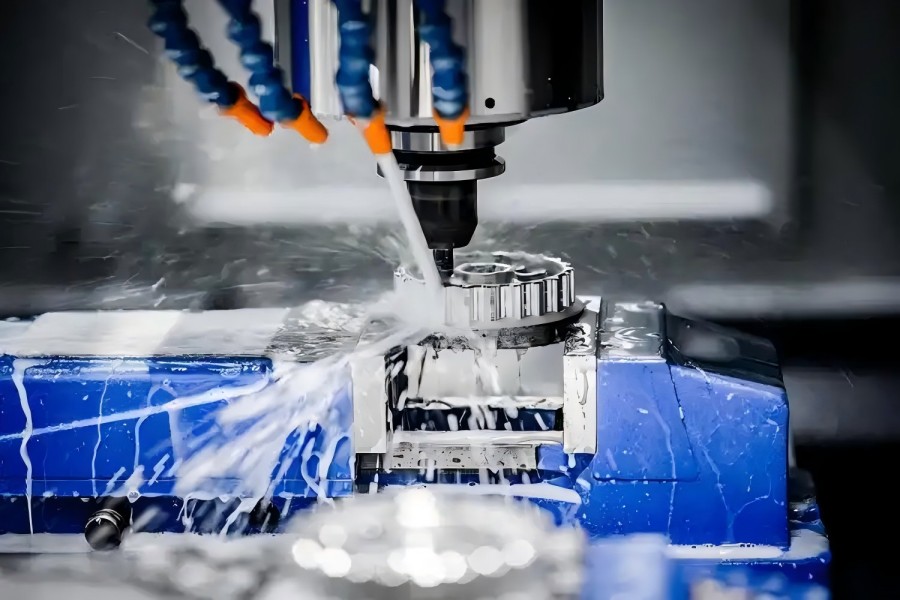News Categories
Contact Us
020-86988980
- Guangzhou Sinoth Import and Export Co., LTD
Tel: 020-8968-8980
Website:www.gzsynoth.com
Email: belinda@dginfa.com(24 hours online)
Phone: +86 189 2740 6786
Address: No 5, Jinshi Three Street, Shiling Town, Huadu District,Guangzhou City, Guangdong Province
News
Current Location:Home > News > Industry information
The advantage and application of artificial intelligence in CNC machining
Add Time:2025-03-28
The advantage and application of artificial intelligence in CNC machining
With the rapid development of science and technology, artificial intelligence has gradually penetrated into various fields, including numerical control (CNC) machining. CNC machining service is the core part of modern manufacturing industry, its efficiency and accuracy directly affect the quality of products and production costs. The application of artificial intelligence has brought revolutionary changes to CNC machining, which can greatly improve the efficiency and accuracy of machining.
The advantages of artificial intelligence in CNC machining
1. Accuracy improvement: AI can control and optimize CNC machining process more accurately through deep learning and big data analysis. For example, AI can accurately predict tool wear by monitoring subtle changes such as vibration, temperature, and sound during the cutting process in real time, so that real-time adjustments can be made during the machining process to ensure machining accuracy.
2. Efficiency optimization: Artificial intelligence can quickly analyze a large number of processing data, find the best combination of cutting speed, feed rate, depth and other processing parameters, which can not only improve processing efficiency, but also reduce tool wear, extend tool life, and reduce production costs.
3. Increased degree of automation: AI can fully automate CNC machining tasks, automatic programming, from tool path planning, cutting process control to quality inspection. Without manual intervention, a lot of time and effort can be saved, making the production line more efficient. This automation can reduce the requirement for employee skills, reduce the opportunity for human error, and improve production stability.
4. Respond to complex tasks: For some complex and fine parts processing, AI can ensure the accuracy and consistency of the processing process through high-precision modeling and simulation.
5. Fault warning: Artificial intelligence can monitor the operating status of the machine tool in real time, and predict possible faults in advance by analyzing various sensor data, so that maintenance personnel can intervene before the failure occurs, reduce downtime, and improve equipment utilization.
6. Strong flexibility: AI has strong learning ability and adaptability, and can quickly adapt to different processing environments and conditions. When processing needs change, AI can quickly adapt to the new production environment by re-learning and adjusting.
7. Data-driven decision-making: Artificial intelligence can transform a large amount of production data into valuable information to provide managers with decision-making basis. For example, through the analysis of historical processing data, key factors affecting processing efficiency and accuracy can be identified to further optimize the production process.
1. Intelligent identification and positioning
In CNC machining, the accurate positioning method can ensure the accuracy and stability of the processing, and the intelligent identification and positioning of the workpiece can be realized through AI technology.
First, take a large number of pictures and samples containing the target artifacts, even images containing different scenes. For example, images from different angles and under different lighting conditions;
Next, the collected images are processed to extract features, such as edges and shapes;
The extracted features and corresponding labels are then used to train the AI model so that the model can identify the type of artifact based on the input information.
Then, by adjusting the model parameters, the optimized model is deployed to the actual production environment, so that the machine can automatically identify the characteristics of the workpiece, determine the position and attitude of the workpiece, and even quickly and accurately identify the type, size, material and other information of the material to be processed.
This information is crucial for subsequent processing, helping to ensure the accuracy and efficiency of the processing, so as to achieve fast and accurate positioning of the workpiece.
2. Intelligent programming
Through AI technology, processing programs can be automatically identified and generated, reducing the time and errors of manual programming; Automatically optimize cutting parameters and machining paths according to machining requirements to improve machining efficiency. Using machine learning algorithms, training CNC programming languages and rules, generating models that enable them to automatically generate executable CNC programs. This can significantly improve the efficiency of the early development phase, enabling more precise implementation of prototype concepts.
The model can generate numerical control programs through dialogue with people, and generate corresponding instructions according to needs, only need to input verbal instructions, and do not need to write complex numerical control programs by hand, so that the programming process is more simple and efficient, avoid the errors brought by manual numerical control programs, improve the machining accuracy and quality, and reduce waste.
With the rapid development of science and technology, artificial intelligence has gradually penetrated into various fields, including numerical control (CNC) machining. CNC machining service is the core part of modern manufacturing industry, its efficiency and accuracy directly affect the quality of products and production costs. The application of artificial intelligence has brought revolutionary changes to CNC machining, which can greatly improve the efficiency and accuracy of machining.
The advantages of artificial intelligence in CNC machining
1. Accuracy improvement: AI can control and optimize CNC machining process more accurately through deep learning and big data analysis. For example, AI can accurately predict tool wear by monitoring subtle changes such as vibration, temperature, and sound during the cutting process in real time, so that real-time adjustments can be made during the machining process to ensure machining accuracy.
2. Efficiency optimization: Artificial intelligence can quickly analyze a large number of processing data, find the best combination of cutting speed, feed rate, depth and other processing parameters, which can not only improve processing efficiency, but also reduce tool wear, extend tool life, and reduce production costs.
3. Increased degree of automation: AI can fully automate CNC machining tasks, automatic programming, from tool path planning, cutting process control to quality inspection. Without manual intervention, a lot of time and effort can be saved, making the production line more efficient. This automation can reduce the requirement for employee skills, reduce the opportunity for human error, and improve production stability.
4. Respond to complex tasks: For some complex and fine parts processing, AI can ensure the accuracy and consistency of the processing process through high-precision modeling and simulation.
5. Fault warning: Artificial intelligence can monitor the operating status of the machine tool in real time, and predict possible faults in advance by analyzing various sensor data, so that maintenance personnel can intervene before the failure occurs, reduce downtime, and improve equipment utilization.
6. Strong flexibility: AI has strong learning ability and adaptability, and can quickly adapt to different processing environments and conditions. When processing needs change, AI can quickly adapt to the new production environment by re-learning and adjusting.
7. Data-driven decision-making: Artificial intelligence can transform a large amount of production data into valuable information to provide managers with decision-making basis. For example, through the analysis of historical processing data, key factors affecting processing efficiency and accuracy can be identified to further optimize the production process.
The specific application of AI in CNC machining
1. Intelligent identification and positioning
In CNC machining, the accurate positioning method can ensure the accuracy and stability of the processing, and the intelligent identification and positioning of the workpiece can be realized through AI technology.
First, take a large number of pictures and samples containing the target artifacts, even images containing different scenes. For example, images from different angles and under different lighting conditions;
Next, the collected images are processed to extract features, such as edges and shapes;
The extracted features and corresponding labels are then used to train the AI model so that the model can identify the type of artifact based on the input information.
Then, by adjusting the model parameters, the optimized model is deployed to the actual production environment, so that the machine can automatically identify the characteristics of the workpiece, determine the position and attitude of the workpiece, and even quickly and accurately identify the type, size, material and other information of the material to be processed.
This information is crucial for subsequent processing, helping to ensure the accuracy and efficiency of the processing, so as to achieve fast and accurate positioning of the workpiece.
2. Intelligent programming
Through AI technology, processing programs can be automatically identified and generated, reducing the time and errors of manual programming; Automatically optimize cutting parameters and machining paths according to machining requirements to improve machining efficiency. Using machine learning algorithms, training CNC programming languages and rules, generating models that enable them to automatically generate executable CNC programs. This can significantly improve the efficiency of the early development phase, enabling more precise implementation of prototype concepts.
The model can generate numerical control programs through dialogue with people, and generate corresponding instructions according to needs, only need to input verbal instructions, and do not need to write complex numerical control programs by hand, so that the programming process is more simple and efficient, avoid the errors brought by manual numerical control programs, improve the machining accuracy and quality, and reduce waste.
In summary, the application of artificial intelligence in CNC machining has achieved remarkable results, which can effectively improve processing efficiency, accuracy and equipment reliability, and promote the transformation and upgrading of the manufacturing industry. But it is also a double-edged sword, while enjoying the convenience it brings, it is also necessary to pay attention to and solve the problems and challenges it may bring.



